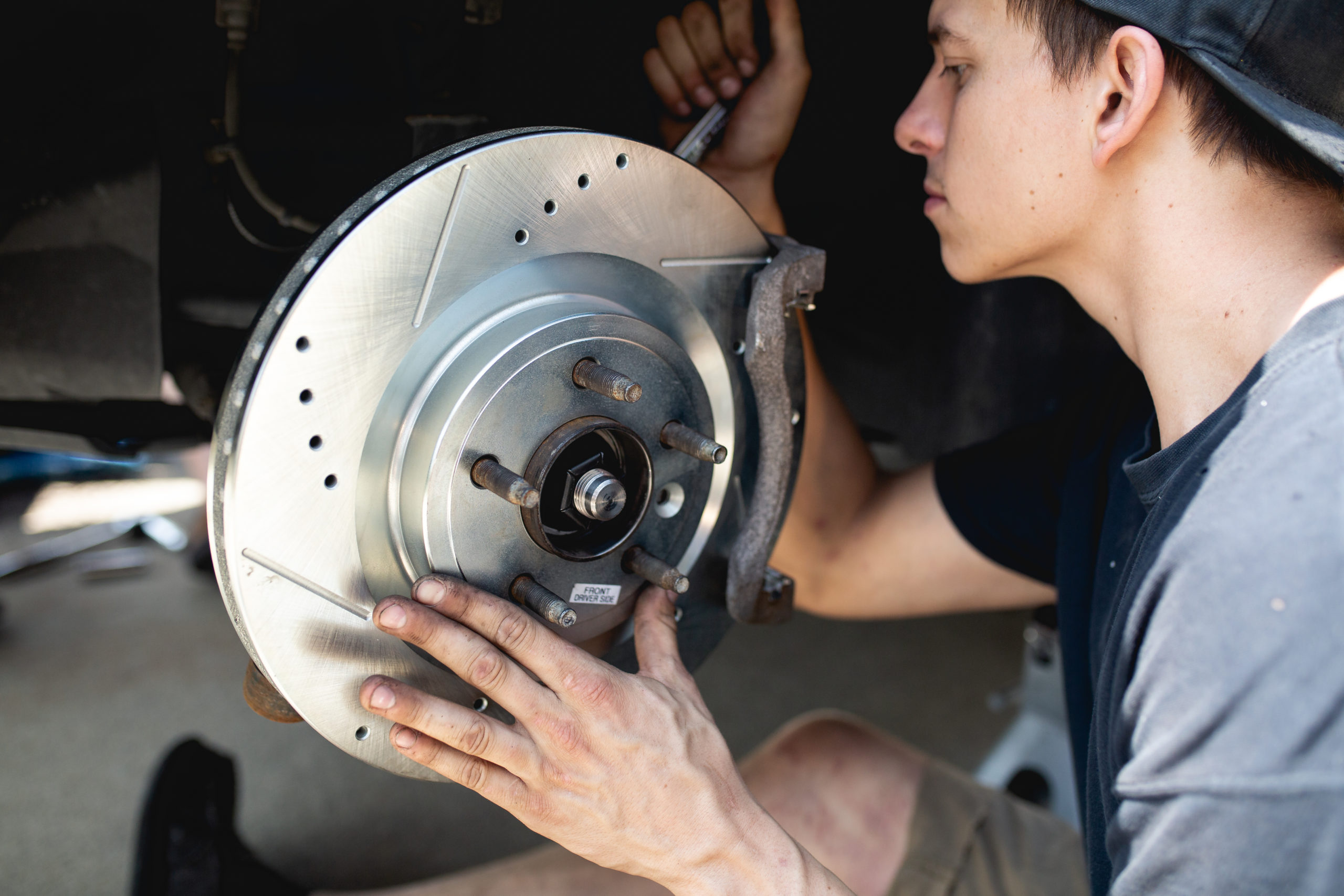
Rotor Holes & Wheel Studs: What’s the Issue?
At PowerStop, we’re always available and eager to answer your questions about brakes. One question we hear frequently is: “When I place the rotor on the vehicle, the holes for the wheel studs are larger than the wheel studs. Will this cause movement between the parts or noise as I drive?”
The answer is no. Floating OEM rotors—as well as certain PowerStop part numbers—sometimes do have slightly oversized wheel stud holes compared to the size of the wheel studs. Once the wheel is torqued down to the proper value, the rotor does not move relative to the wheel or the wheel studs. All parts rotate as an assembly. If noise is present, the pad/rotor/caliper assembly should be checked to make sure all hardware is installed properly.
When discussing rotor replacement, it is worth noting how to recognize when your rotors need to be replaced in the first place. Below, we explain how to know when your rotors need to be replaced.
How Do I Know When My Rotors Need to Be Replaced?
How do you know that your brake rotors need replacing? Here are some common signs:
1. Rotors Appear Blue
Prolonged friction can create excessive heat and cause your rotors to appear blue over time. This is a sign that it is time to replace the rotors.
If your vehicle has large wheels and not many spokes, you may be able to check your rotors by simply kneeling down and looking. Otherwise, you will need to take off your tire completely to check the color of your rotors. Use a flashlight if necessary and check the rotors for any sign of a blue tint.
2. Vibrations Occur When Braking
If you feel pulsing in the brake pedal or vibrations in the steering wheel or throughout the vehicle when braking, it may be a sign that your rotors are warped or worn out and need to be replaced.
Vibrations can also occur due to a problem with your tires or gears. In these instances, you may notice that your steering wheel starts to shudder from side to side when you shift lanes or make turns. You can determine the cause of your problem by visiting your nearest service center and getting your vehicle checked out.
3. Squeaking or Screeching Sounds
This is a loud, obnoxious warning sign that is difficult to miss. If you hear screeching, squealing, grinding, or growling when you engage the brakes, you either need to replace your rotors or there is something else wrong with your braking system that should be addressed promptly.
These tell-tale sounds often occur during long, rolling stops or while making sharp turns. While screeching sounds could indicate that your brake rotors need to be replaced, they can also signify an alignment issue. An automotive professional can determine the nature of the squeal and recommend the best solution to the problem.
4. Grooves and Scoring
Scoring and grooves on the discs are a sign of damaged rotors. To look for grooves and scoring on discs, you will need to remove the tire. Since not all areas of the disc may be damaged, it is necessary to take the tire off completely to conduct an inspection. If you identify scoring or grooves on the rotors, it is time to replace them.
5. Excessive Braking Time
If you notice that your car takes longer to come to a full or rolling stop, you should replace your rotors immediately; you never want to let your rotors get to the point where they stop braking altogether. This issue generally coincides with the loud squealing sound mentioned above. Once you notice excessive braking times, get your braking system inspected right away.
6. ABS Warnings
An Anti-lock Braking System (ABS) has a sensor that monitors your brake’s health. While this system does not specifically monitor the state of brake rotors, an ABS warning is indicative of a general braking issue. If this warning is ignored and you continue to drive without identifying and correcting the issue, the sensor could eventually become damaged and your braking system— including your rotors—can experience problems.
7. New Rotor Recommendation from a Car Service Professional
A surefire way to know that your rotors should be replaced is when a car service professional recommends it. Failing to replace worn rotors is dangerous and could lead to further damage to your vehicle and risk your safety.
Have a Question? PowerStop Can Help!
At PowerStop, we recommend replacing or resurfacing rotors every time new brake pads are changed. This promotes a fresh initial friction layer and helps to properly bed the new pads.
If you have questions regarding brake rotors, brake pads, or any of our products, call us now toll-free at (888)863-4415 or contact us online. Our customer service team is available to answer your questions Monday through Friday from 8 a.m. to 5 p.m. (CST). Se habla español.
